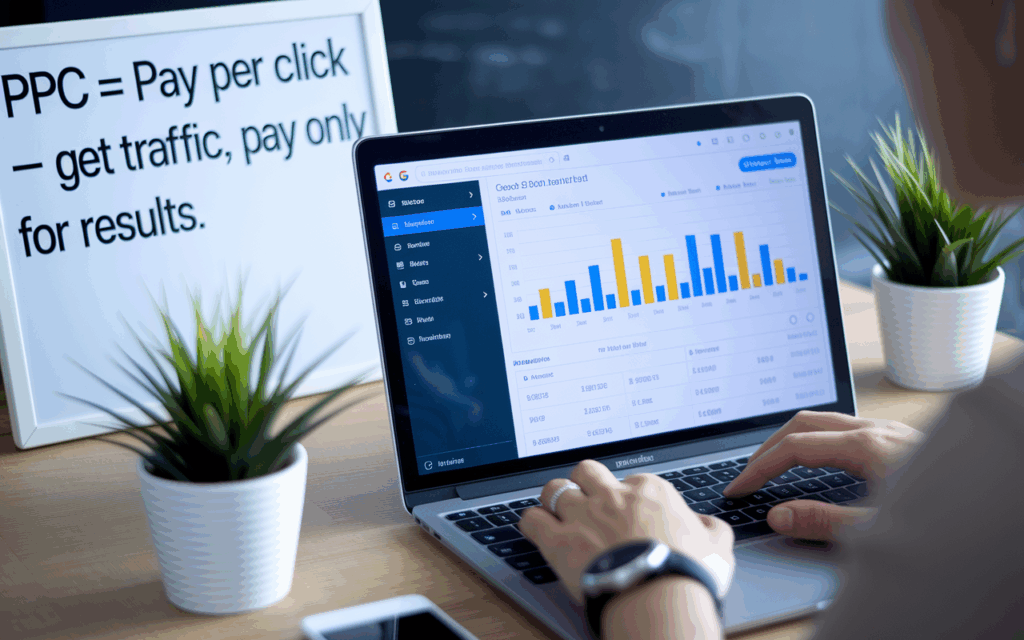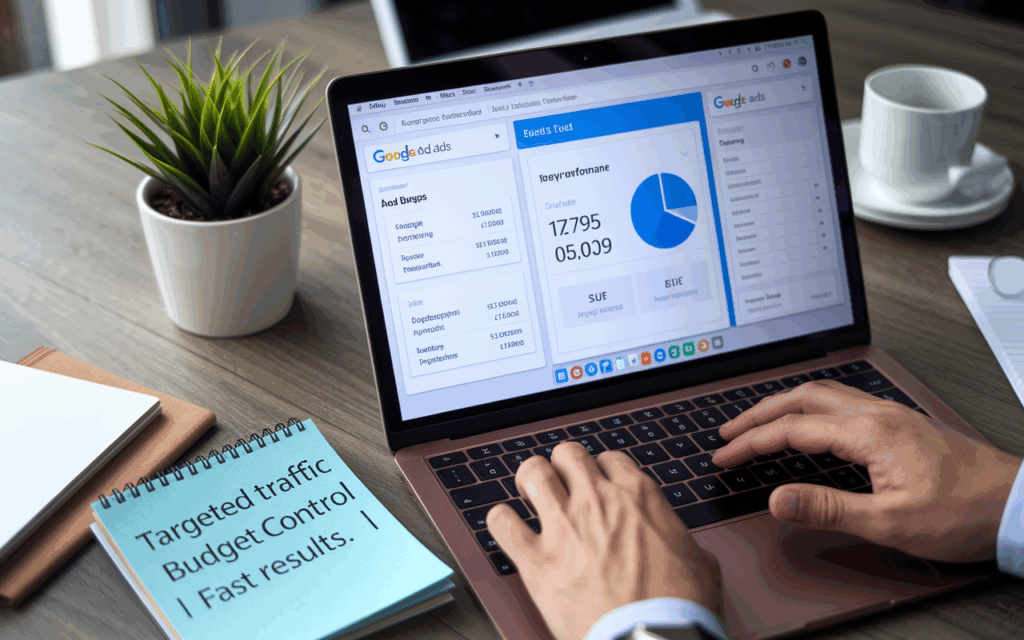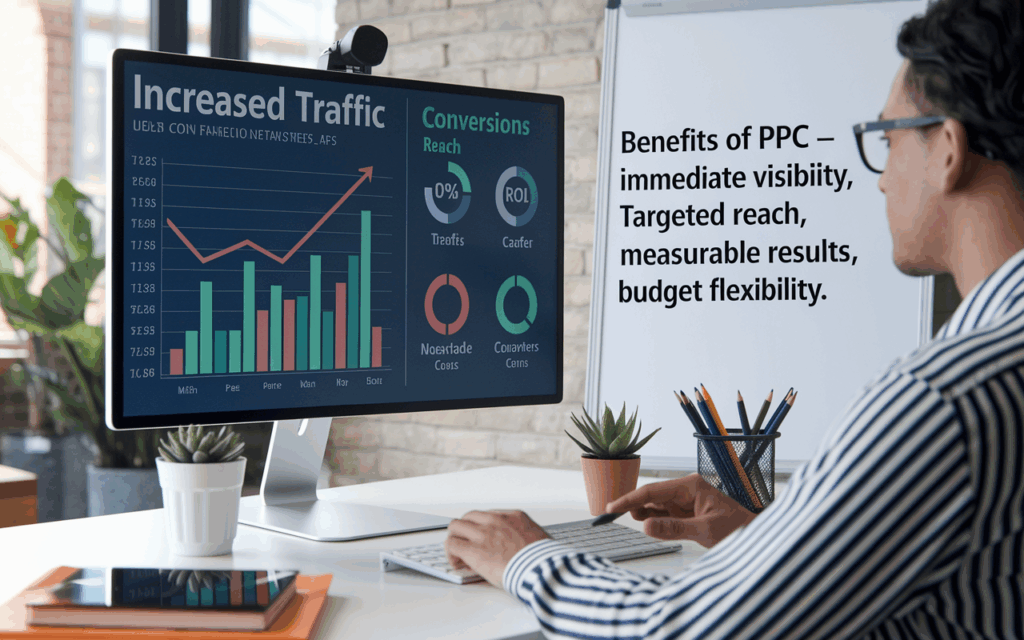
PPC stands for Pay-per-Click, which is an online advertising strategy where advertisers pay search engine companies or other companies for displaying their ads.
Using this model, ad publishers are only paid only if and when someone clicks on the ads, making it more effective at reducing the cost of a PPC account because it only requires payment if there's engagement.
How Does PPC Advertising Work?
Say, for example, a soft drink advertiser offers to pay a store owner to put a billboard outside their store front in order to market an exciting new brand of orange soda. But, here's the catch: the store owner is only paid if someone comes into the store and specifically inquires about the orange soda.
The same is true for online PPC campaigns. Except, in the the online world, an advertiser pays a web publisher for traffic, but only if and when a person clicks on the ad.

What are the Benefits of PPC Ads
Pay per click is a very beneficial digital marketing strategy for a variety of reasons. When set up and managed effectively, a PPC campaign can not only boost online traffic, but it can also result in much more highly measurable ROI when compared to many other marketing tactics.
Other top benefits include:
Easy on your ad budget. Many types of advertising require you to pay the same amount for your advertising spot — no matter how many people (or how few) see it or interact with it. But with pay per click, you only pay when someone engages with your ad. And you can also set a budget ahead of time, so you don't go over.
Quick results. A PPC ad can yield powerful, short-term results when it comes to increasing and evaluating web traffic. A PPC model is also quick to set up on a variety of different social media platforms!
Increases brand recognition. PPC marketing helps you appear in more search ads. The more you appear, the more likely people are willing to make purchases and follow your content.
Optimizes target audience reach. Using keyword research you can better target your ads to reach your ideal potential customer.
Offers valuable metrics. Automated tools built into many PPC campaign platforms allow you to measure vital data about your ad clicks and website traffic including ppc rates, click through rate, quality score, and more.
How to do effective PPC keyword research?
Google AdSense and other search engines have an excellent PPC strategy, which helps Google advertisers expand their reach to achieve the maximum impressions. But, the number you get from PPC advertising will depend upon what keyword you pick if you have the right match type. The success or lack of success of your PPC campaign depends in many ways.
PPC keyword searches can be challenging, but they can be immensely helpful as well. To optimize your pay per click ppc campaigns, you'll need to do your research.
Understanding your goals is key. Do you want to convert more visitors? Or do you have specific metric goals in mind (e.g. a set number of conversions/clicks per campaign period?)
Then, you'll want to use a keyword tool to help with your research. There are both free and paid tools available. The most effective Google Ads Adwords advertise primarily around keywords and their keywords are constantly updated and optimized.
You may wan to check out tools such as Ahrefs, Spyfu, Keywords Everywhere, and Google Keyword Planner, which can not only help you discover new keywords but provide in-depth metrics around monthly search volume and and cost per click.
How to Set Up a PPC Advertising Campaign
So, how you get started setting up a PPC campaign? The good news is there's a lot of different platforms that offer PPC services. The most popular platforms are likely ones you've already heard of. You can build PPC ads on:
- Microsoft
- YouTube
- Twitter, and
- TikTok for Business

Of course, PPC advertising looks different from platform to platform, but in general, the process is as follows:
First, consider the primary goal of the PPC ad. It could be:
- Increasing traffic to websites
- Drive leads
- Generate more revenue
- Build brand awareness
Then, choose your campaign type based on your goal.
Set your settings and targets (audiences, devices, locations, schedule, etc.).
Provide your budget and bidding strategy.
Input your destination URL (e.g. your land pages)
Then, build your ad!

